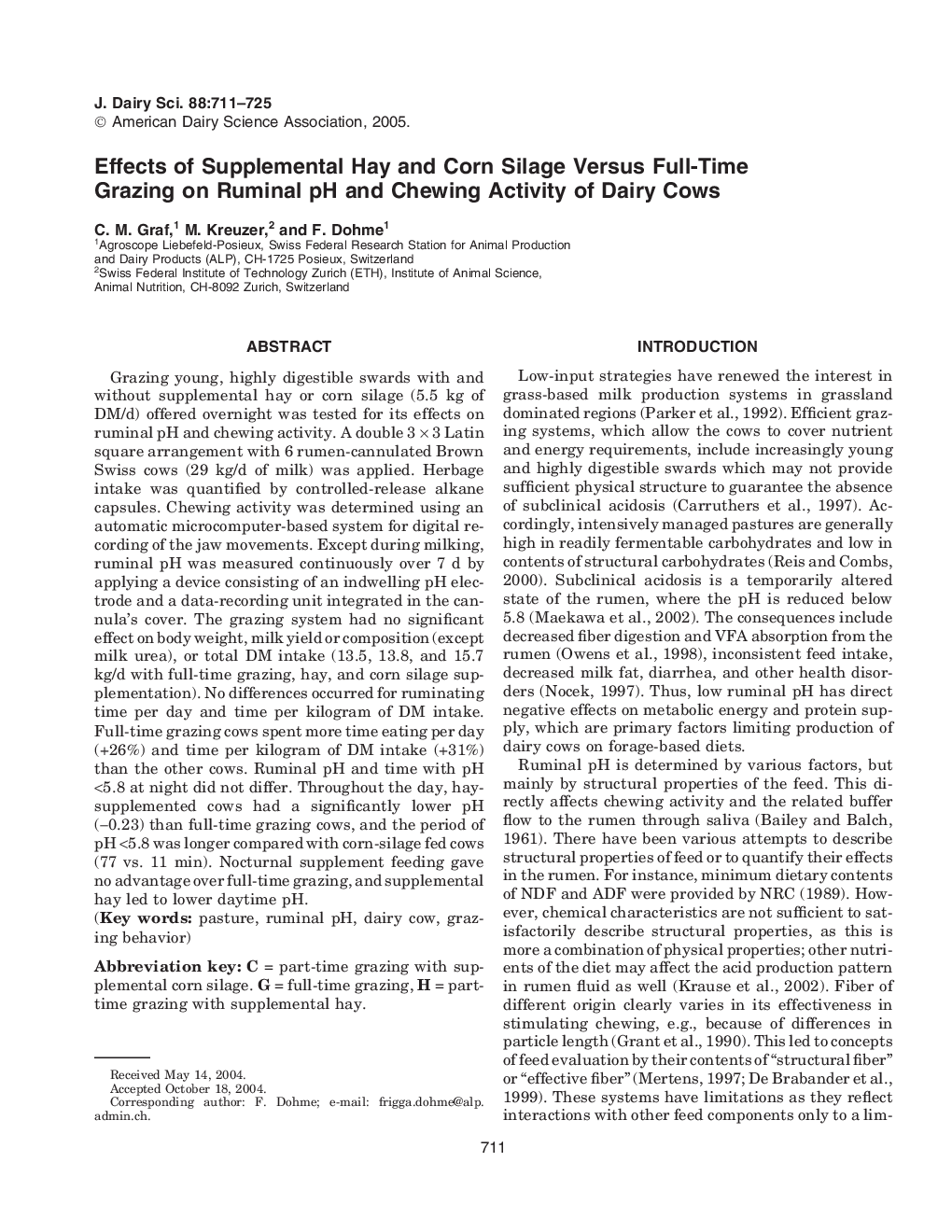| Article ID | Journal | Published Year | Pages | File Type |
|---|---|---|---|---|
| 8981192 | Journal of Dairy Science | 2005 | 15 Pages |
Abstract
Grazing young, highly digestible swards with and without supplemental hay or corn silage (5.5Â kg of DM/d) offered overnight was tested for its effects on ruminal pH and chewing activity. A double 3Â ÃÂ 3 Latin square arrangement with 6 rumen-cannulated Brown Swiss cows (29 kg/d of milk) was applied. Herbage intake was quantified by controlled-release alkane capsules. Chewing activity was determined using an automatic microcomputer-based system for digital recording of the jaw movements. Except during milking, ruminal pH was measured continuously over 7 d by applying a device consisting of an indwelling pH electrode and a data-recording unit integrated in the cannula's cover. The grazing system had no significant effect on body weight, milk yield or composition (except milk urea), or total DM intake (13.5, 13.8, and 15.7 kg/d with full-time grazing, hay, and corn silage supplementation). No differences occurred for ruminating time per day and time per kilogram of DM intake. Full-time grazing cows spent more time eating per day (+26%) and time per kilogram of DM intake (+31%) than the other cows. Ruminal pH and time with pH <5.8 at night did not differ. Throughout the day, hay-supplemented cows had a significantly lower pH (â0.23) than full-time grazing cows, and the period of pH <5.8 was longer compared with corn-silage fed cows (77 vs. 11Â min). Nocturnal supplement feeding gave no advantage over full-time grazing, and supplemental hay led to lower daytime pH.
Related Topics
Life Sciences
Agricultural and Biological Sciences
Animal Science and Zoology
Authors
C.M. Graf, M. Kreuzer, F. Dohme,
